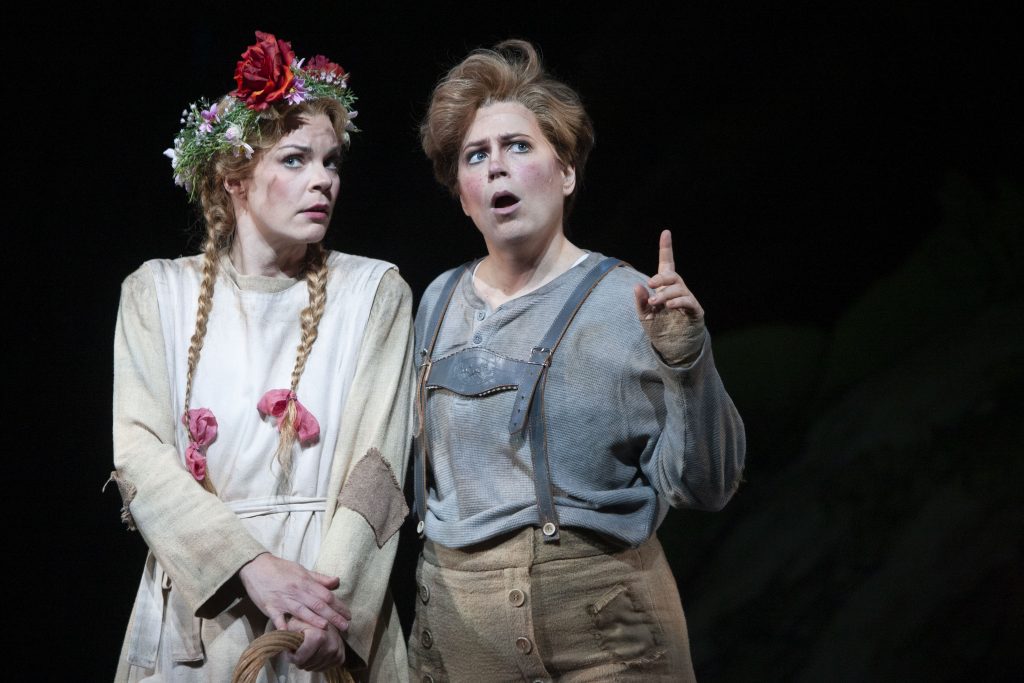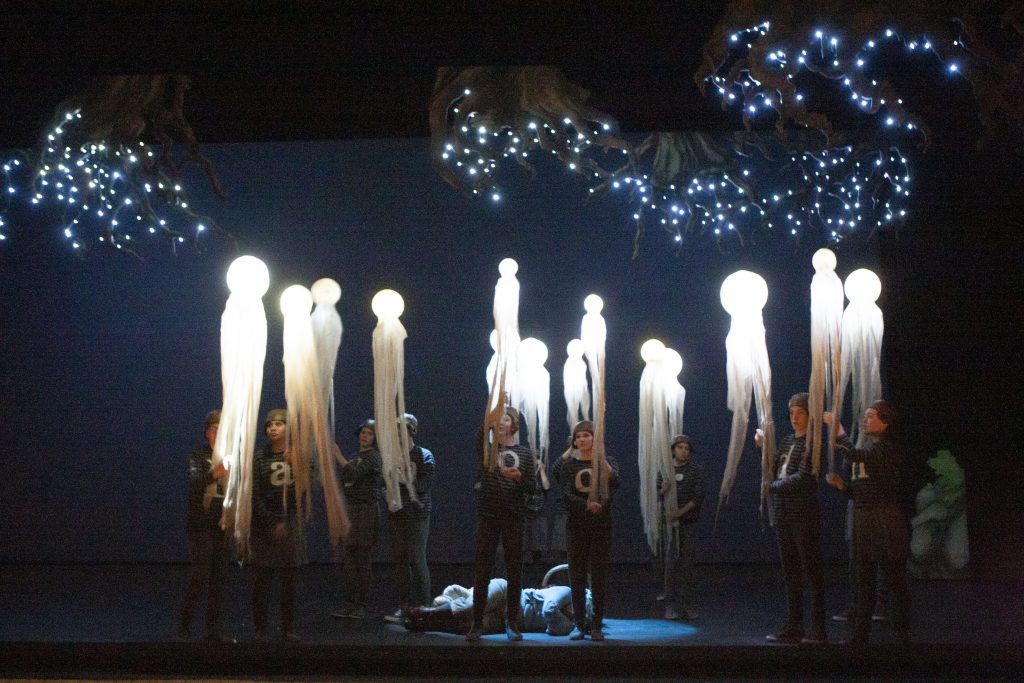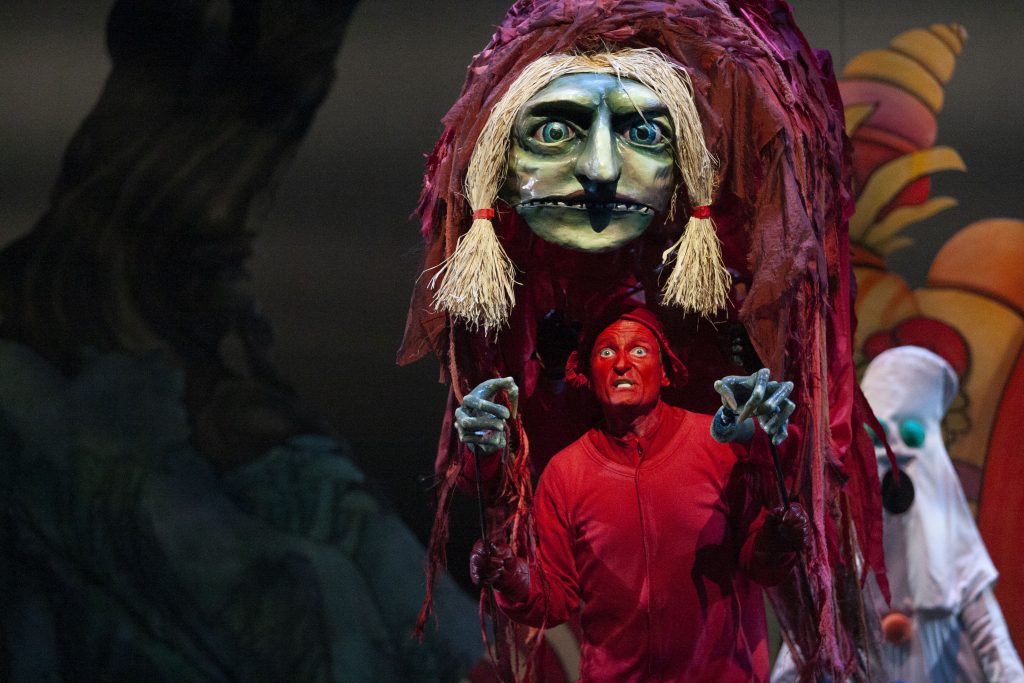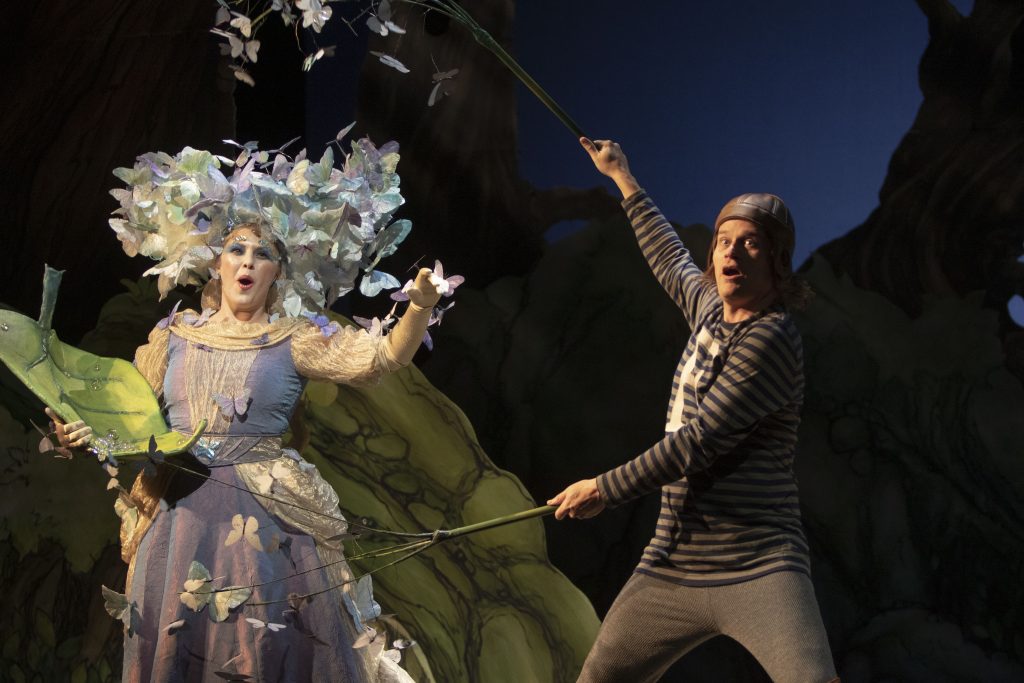Strong Voices Grace San Diego Opera’s ‘Hansel and Gretel’ Vividly Staged with Forest Creatures of Day and Night
From my earliest childhood years, the one stern parental directive I can never forget is, “Don’t accept candy from strangers!” My mother sternly decreed this ironclad precept—it allowed no exceptions—although the consequence of breaking the rule remained a purposely undefined sense of danger.
The traditional “Hansel and Gretel” fairy tale has long served as a cautionary story vividly depicting the danger of children accepting favors from strangers whose intentions are harmful to the point of life-threatening. When the Grimm brothers, early 19th-century German folklorists, published the tale, this was indeed their interpretation, although historians claim that the earliest stages of “Hansel and Gretel” came from 14th-century stories of child abandonment during times of famine.

Sara Gartland (l.) & Blythe Gaissert (r.) [photo (c.) J. Katarzyna Woronowicz Johnson]
A production oiginally staged by Vancouver Opera with scenery, puppets and costumes designed by The Old Trout Puppet Workshop, this Hansel and Gretel filled the Civic Theatre stage with actors costumed as wild forest creatures by day and as ghostly spirits and flickering will ‘o the wisps at night. Other actors waved large, colorful bird puppets on long poles, “flying” them through the forest in which Hansel and Gretel become lost or “nesting” the birds on high tree branches to call to the frightened children below. Humperdinck’s orchestral score usually bears the burden of depicting these birds, beasts, and spirits, but the workshop’s vivid incarnation of these participants gave them splendid physical reality.

Forest spirits in Hansel and Gretel [photo (c.) J. Katarzyna Woronowicz Johnson]

Joel Sorenson [photo (c.) J. Katarzyna Woronowicz Johnson]
Under the tutelage of Martin Green, the 14 young treble singers that formed the opera’s children’s chorus added their sharp ensemble and vocal radiance to Gartland and Gaissert in the opera’s uplifting finale, a reprise and elaboration of the opera’s biggest hit, the devotional “Evening Prayer” that Hansel and Gretel intone before their hastily improvised nap on the forest floor.

Devon Guthrie [photo (c.) J. Katarzyna Woronowicz Johnson]
Although a newcomer to San Diego Opera, stage director Brenna Corner brought her experience directing the Vancouver production to bear, keeping the complex trajectories of the actors operating the animals and moving scenery in seamless coordination. She encouraged an exaggerated physicality from the singers, reinforcing the idea that they were more like the brightly-hued characters in a young child’s story book than true to life actors is a verismo melodrama. Corner is credited with the English translation of the German libretto, which we both heard from the singers and read on the supertitles. Corner chose to retain the rhyming couplets, which worked with linguistic felicity at least 90% of the time. Not a bad average for an entire opera text!
This opera production by San Diego Opera opened on February 8, 2020, in San Diego Civic Theatre, and will be repeated in that venue February 11, 14, and 16, 2020. It will also be broadcast on 89.5 FM radio on June 13, 2020, at 8:00 p.m.

Ken Herman, a classically trained pianist and organist, has covered music for the San Diego Union, the Los Angeles Times’ San Diego Edition, and for sandiego.com. He has won numerous awards, including first place for Live Performance and Opera Reviews in the 2017, the 2018, and the 2019 Excellence in Journalism Awards competition held by the San Diego Press Club. A Chicago native, he came to San Diego to pursue a graduate degree and stayed.Read more…
